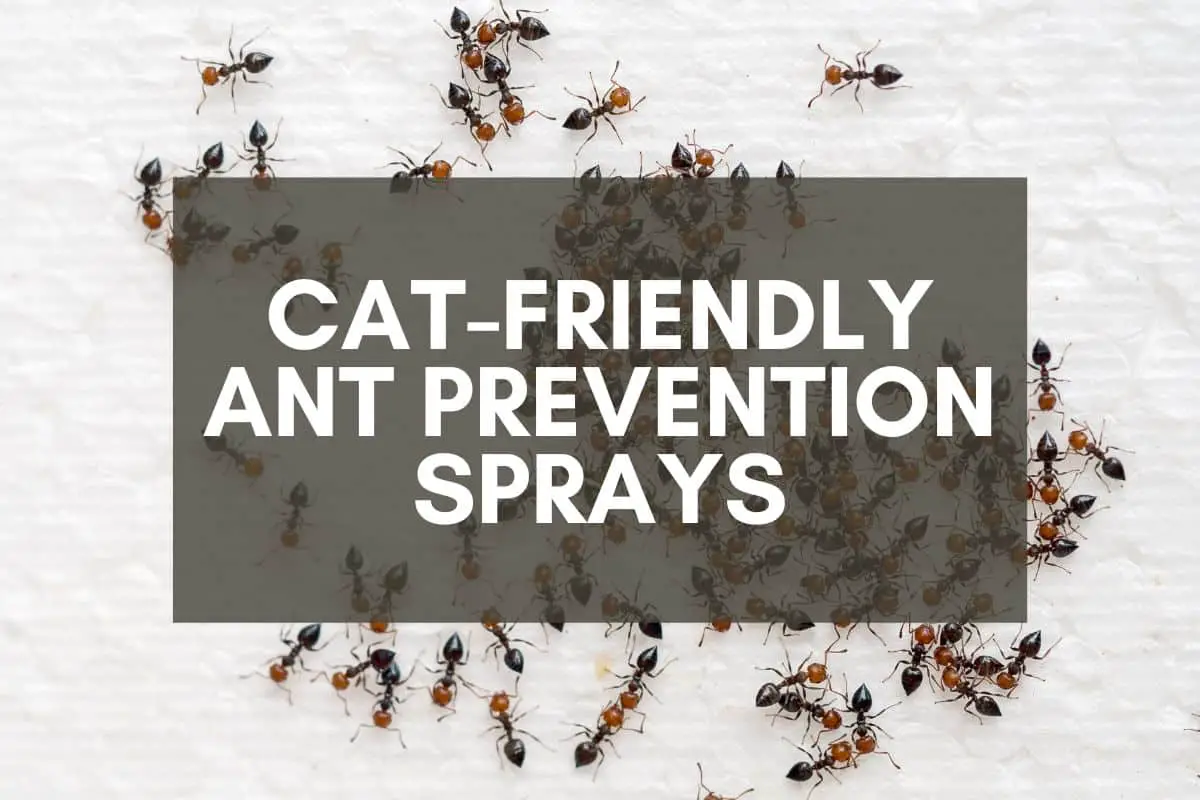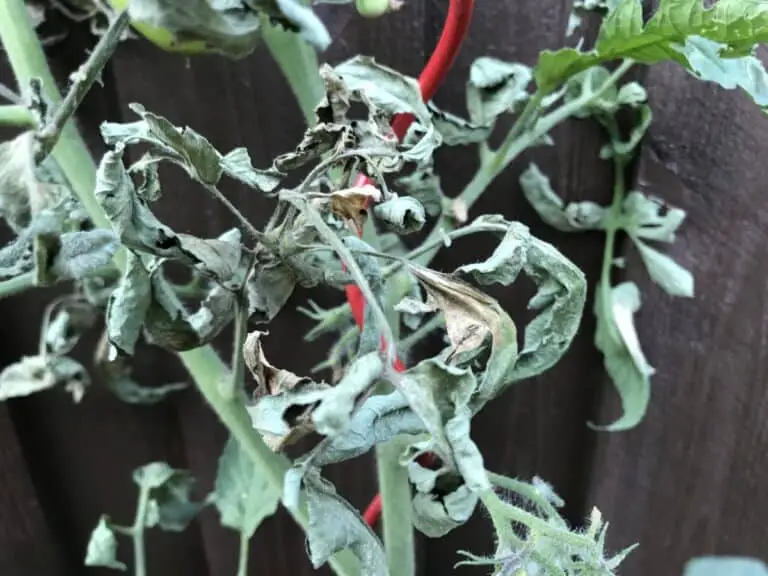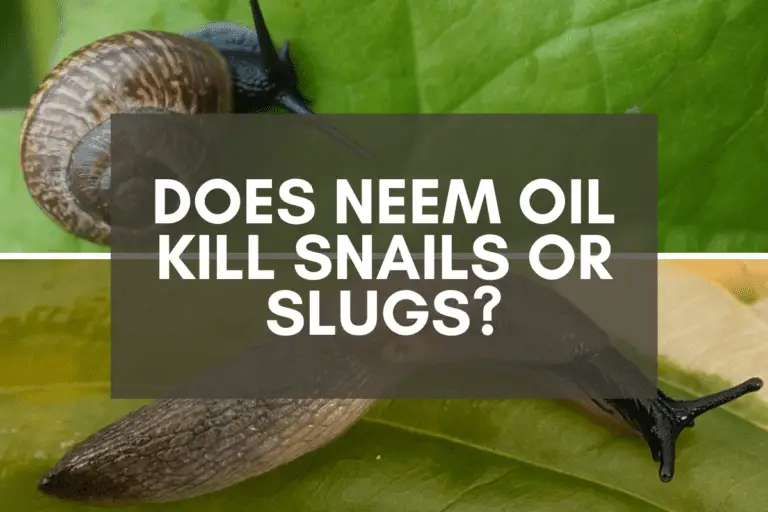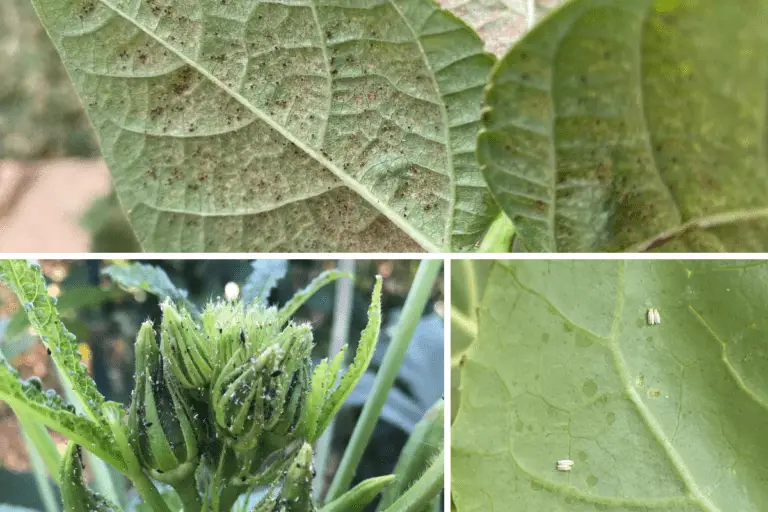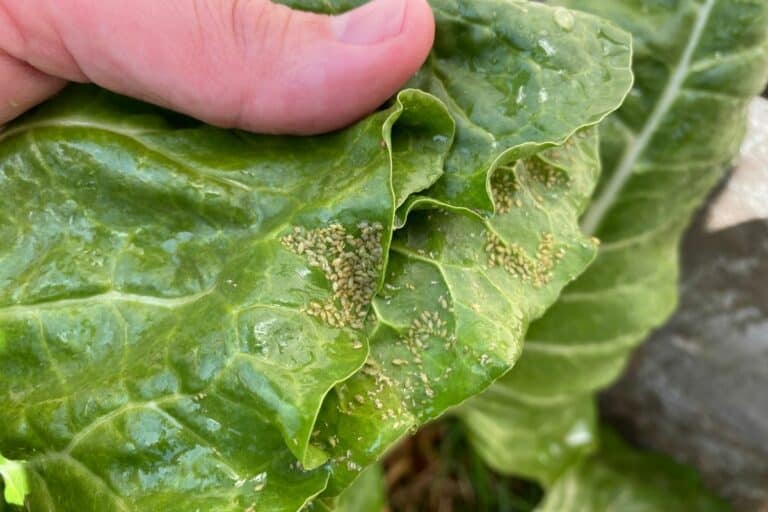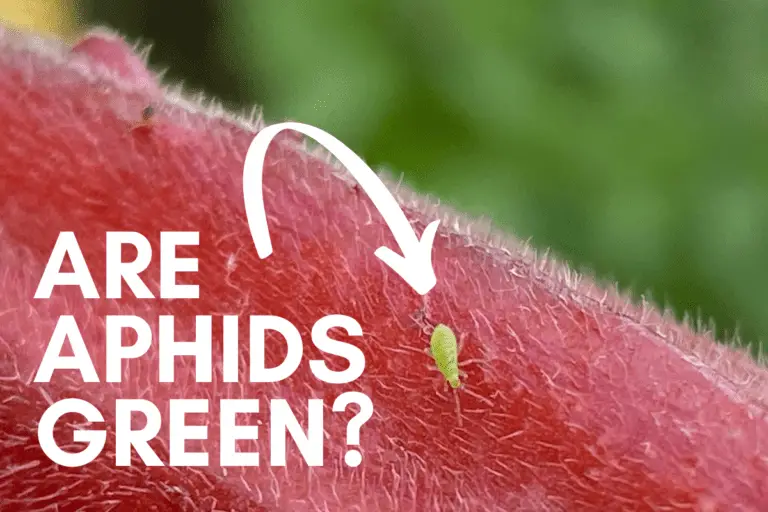Ant Prevention with Essential Oils: Are They Safe for Cats?
At some point in time, practically everyone has experienced ant-related headaches.
My most recent bout with ants was when I found a few of them wandering on my bathroom counter. It started with a couple ants here and there, but before I knew it, they were all over the place!
It’s hard enough to find a good remedy for ant infestations, but if you’re a cat owner (like me), it’s even more difficult since you’ve got to make sure that the products you use won’t harm your furry friends. As if the ants aren’t complicated enough!
After lots of research, as well as some trial and error, I’ve found success with several DIY essential oil sprays, but if you’re going to use a homemade spray, especially one that contains essential oils, you’ll need to know which oils are safe to use around your little furballs.
Essential oils like peppermint oil, tea tree oil, and citrus oil will kill off ants and prevent ant infestations, but they can be toxic and thus dangerous for cats. The safest and most effective oils for warding off ants in your cat-friendly home or garden are cedarwood oil and lavender oil.
Essential oils may be a solution to just about anything, but if you’ve got a feline friend, you’ll need to think twice before reaching for certain ones. Various essential oils are considered natural pesticides and can thus have harmful effects on cats and other pets.
But don’t worry: I’ll share some tips below for how to use cedarwood oil and lavender oil to effectively rid your home of ants while keeping your cats safe. In this article, you’ll learn:
- which essential oils kill and prevent ants.
- why certain essential oils are safe for cats.
- recipes for cat-friendly essential oils sprays.
I’ll also discuss other all-natural products that are safe for cats and effective against ants so as to keep the former happy and healthy and the latter out of your home and garden.
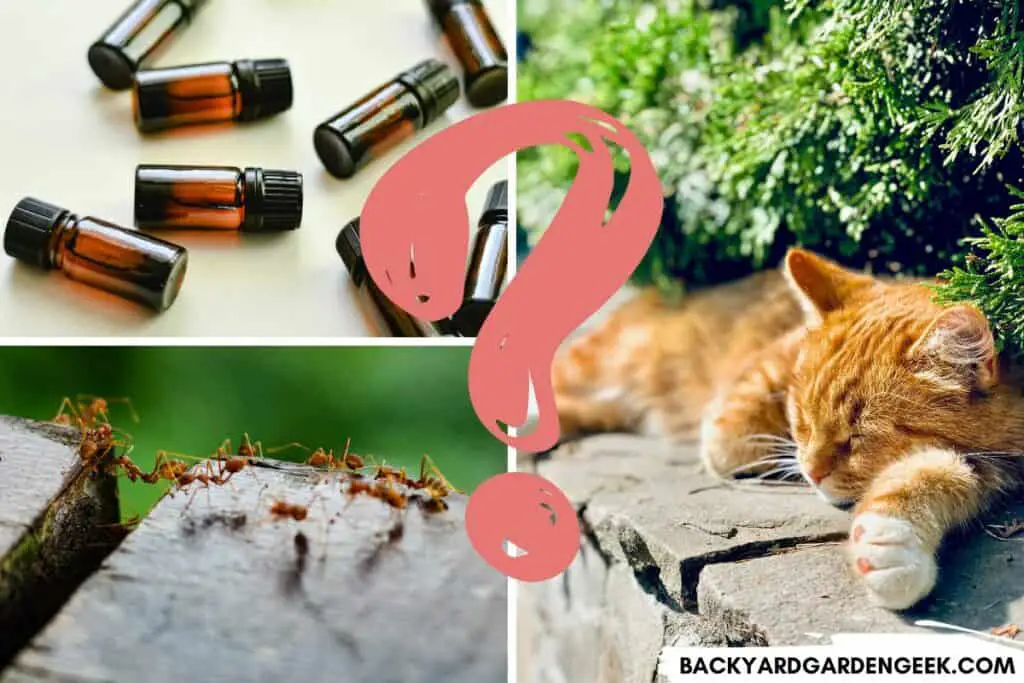
Will Essential Oils Stop Ants Without Harming My Cats?
While there are many essential oils that are proven to kill and prevent ants, many of these common ingredients are actually harmful to cats.
Whether you’re treating your home or your feline-friendly garden, you’ll want to protect your cat from these harmful oils that cause skin irritation, upper respiratory conditions, and even liver disease.
Before we discuss which oils are safe and which are harmful, it’s important to remember that the ingredients I discuss are harmful to pets, not humans. If you have a pet-free household, you can use many more products to deter ants, like the ones discussed in this article effective peppermint oil sprays.
The most effective and safe essential oils to use in your home against ants are cedarwood oil and lavender oil. These oils are not considered toxic and can be used around your cat without risk of illness or injury.
Cedarwood oil has a strong fragrance disorients ants. Ants release pheromones to communicate, find food, and regulate bodily functions. When cedarwood oil is introduced, these pheromones are disrupted, making the ants disoriented. They can no longer find food or return to their colony.
Cedarwood oil also kills ants, usually through dehydration and oxygen deprivation. When introduced around ants, this oil absorbs moisture and leaves ants excessively dried out, ultimately killing them. Cedarwood oil, like other essential oils, blocks the passages that ants breath through, limiting their oxygen intake and suffocating them.
Lavender oil is also an effective bug repellent and can be used to deter ants. Ants dislike the strong scent of lavender and tend to avoid it. While lavender oil does not kill ants outright like cedarwood oil does, it can be sprayed in windows and doorways to prevent them from entering.
Both cedarwood oil and lavender oil are highly concentrated in oil form and should be diluted before using around cats. Follow the DIY spray recipes below to fight off ants while keeping your feline companions safe.
One final note: Rosemary oil can technically be diluted and used as a flea repellent, but I haven’t seen enough research on the subject to recommend this, and to be honest, I’d be worried that my cat would ingest some oil when cleaning herself.
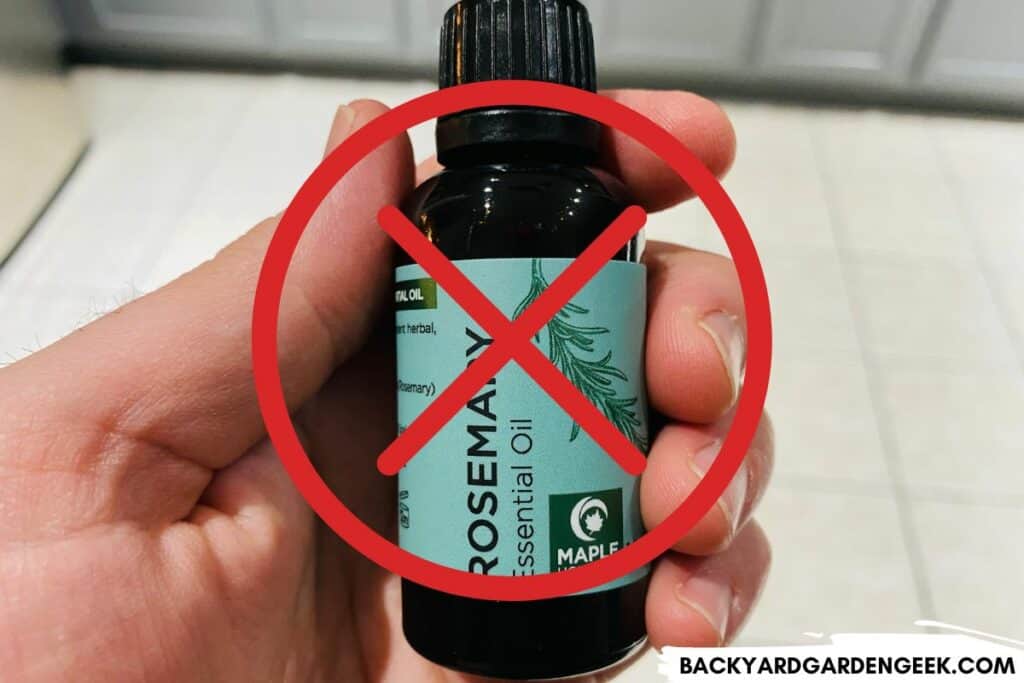
I thought I’d mention this because I’ve seen people recommend it as a flea repellent, but I wouldn’t use it to make an ant repellent spray.
Which Essential Oils Should I Avoid?
Many essential oils act as effective pesticides but are not safe for household pets. Here’s a list of oils that cat owners should avoid using at home:
| Oils to Avoid | Effects on Cats |
|---|---|
| Cinnamon Oil | Allergic reaction, blood clotting conditions, liver damage |
| Citrus Oil | Allergic reaction, liver damage |
| Clove Oil | Liver damage, seizures |
| Patchouli Oil | Liver damage, seizures |
| Peppermint Oil | Liver damage, nervous system effects |
| Tea Tree Oil | Allergic reaction, difficulty breathing, liver damage |
When cats come into contact with them, these essential oils can cause allergic reactions on their skin and around their mouths.
Essential oils are harmful when sprayed onto surfaces and when used in a diffuser because, as any cat owner knows, cats like to rub against surfaces around the house. If you’ve got oil residue on those surfaces, cats can absorb it through their skin.
When it comes to diffusers, these spray small particles of oil into the air, which can cause harm to cats if they’re sleeping nearby and inhaling the droplets.
The reason these oils are harmful to cats is due to the fact that cats lack a liver enzyme that helps digest the chemical components in most oils. If these chemicals are not properly digested, they can potentially cause liver damage. Even a small amount of these oils introduced to your cat’s environment can potentially be harmful.
With cinnamon oil in particular, it can act as a blood thinner. Humans are large enough to ingest cinnamon without experiencing any blood conditions, but because cats are much smaller, they can develop problems if exposed to harmful cinnamon oils.
When it comes to orange oil, this is a bad one as well in terms of cat health. Essential oils are highly concentrated, which is why orange oil is much more harmful than an orange peel. Symptoms of orange oil poisoning can include rashes, vomiting, diarrhea, disorientation, and seizures.
If your cat develops any of these symptoms, you should contact a veterinarian immediately.
Please be aware that this is only a small list of common oils used to fight ants. There are many other essential oils that have other benefits to humans but are harmful to pets. Please use caution before introducing essential oils into your home if you’ve got any furry friends living with you in the house.
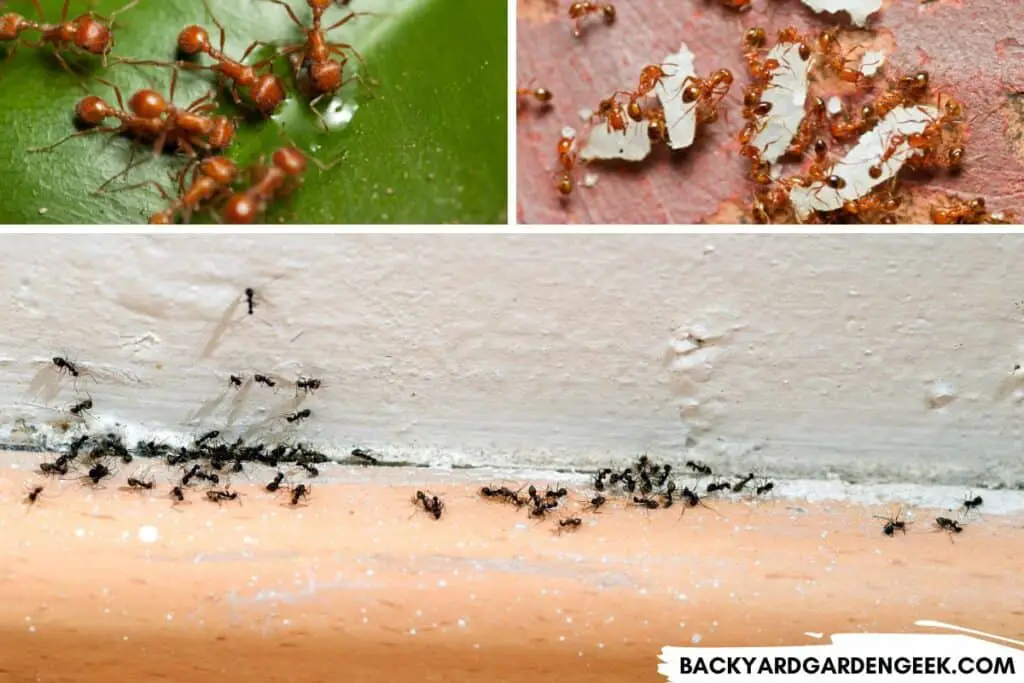
Essential Oil Sprays: A Cat-Safe Way to Get Rid of Ants
So now that you know which essential oils to use and which to avoid, how do you use them effectively to kill and repel ants?
When purchasing cedarwood oil and lavender oil, it’s important to purchase from reputable retailers. Small businesses can develop their own essential oils and may or may not list other ingredients on the labels. But most reputable oil brands have developed formulas that are science-backed, so stick to these brands.
Always check each bottle of essential oils you purchase to ensure there are no harmful added ingredients. Some companies will note that their products are “kid friendly” or “pet friendly.” That’s a good sign, but don’t take them at their word. Check the label first.
Once you’ve found the right essential oil, follow these simple recipes for a quick and effective DIY ant eradicator:
Cedarwood Oil Ant Spray Recipe
- Mix 1/2 cup water with 1/2 cup white vinegar in a spray bottle.
- Add 15 drops of cedarwood oil.
- Shake and spray wherever you see ants.
Lavender Oil Ant Spray Recipe
- Fill a spray bottle with 2 cups of water.
- Add 20 drops of lavender oil.
- Shake thoroughly before each use and spray wherever you see ants.
Alternatively, you can spray either of these DIY products onto a cotton ball and leave wherever you want to prevent infestations, like around doors and windows or in cabinets.
I recommend spot testing these sprays on surfaces before applying. Essential oils are concentrated and have the ability to stain or discolor surfaces. If this occurs, dilute your spray until it no longer causes any damage.
Which Products Kill Ants But Are Safe for Cats?
If you’re looking for other products to kill and prevent ants that are alsop safe for your cats, there are several good options:
1. Baking Soda
Baking soda is a common short-term solution to ant infestations. When ingested, baking soda reacts with the stomach acid in ants and kills them.
Ants will not eat baking soda alone, so mixing baking soda with powdered sugar is an effective solution. Ants love sugar, so they will eat both the sugar and the baking soda!
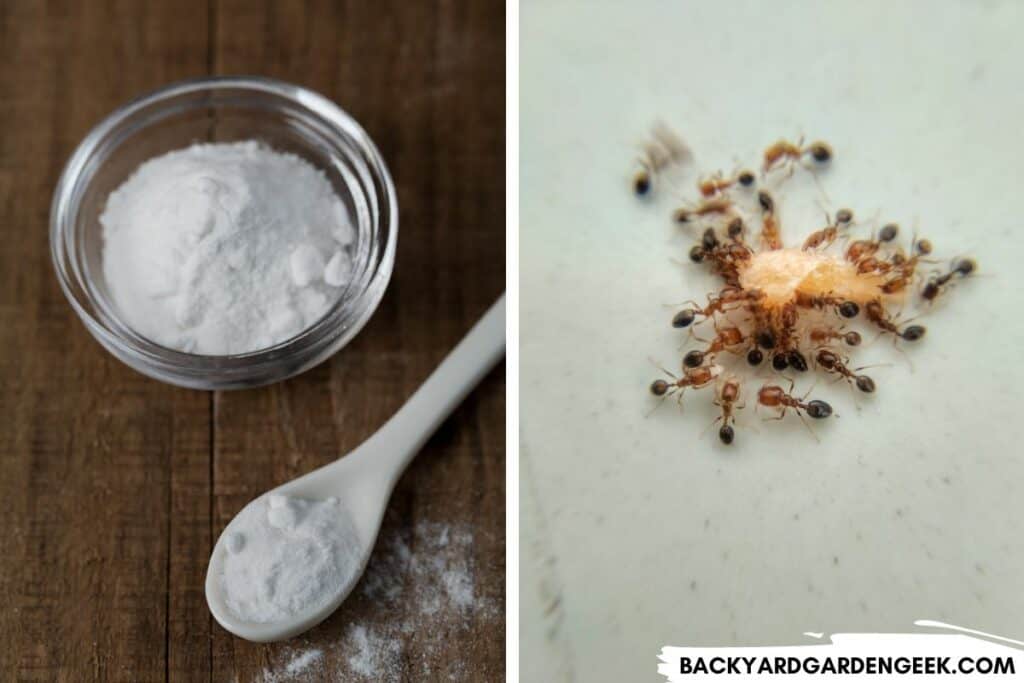
Baking soda also acts in the same way as diatomaceous earth (see below). As ants come into contact with it, they’ll absorb it through their exoskeletons and thus dehydrate. The baking soda will soak up all the moisture inside an ant and ultimately kill it.
Add some water to the baking soda and sugar mixture so ants track the mixture back to the queen. If you’re lucky, the queen will eat the baking soda too, and your problem will be solved!
However, I consider baking soda a short-term solution. It’ll kill existing ants, but it won’t prevent future infestations.
2. Castile Liquid Soap
Soap acts the same way baking soda does. When an ant steps into soapy water, the soap sticks to the ant’s exoskeleton and pulls moisture out of its body, ultimately killing it.
Soapy water can be a very effective way to exterminate your ant population. Mix 2 cups of water with 1/8 cup soap and spray onto any ant-infested surfaces.
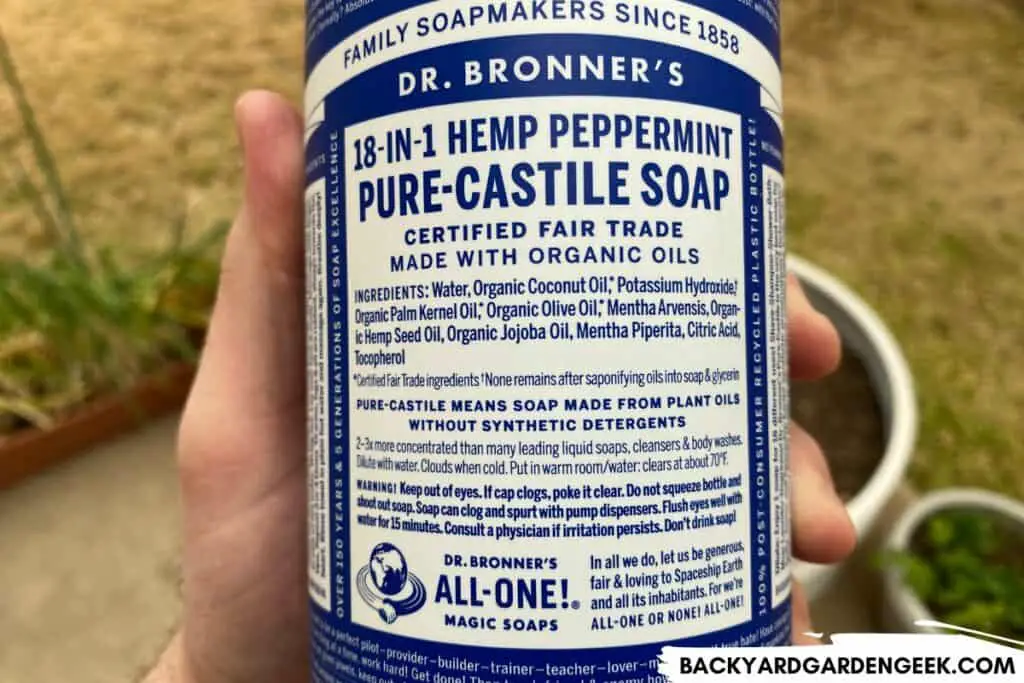
It’s common to mix peppermint oil with castile soap to repel ants, but please remember: Peppermint castile soap (like the bottle pictured above) is fine for pet-friendly homes and gardens, but peppermint oil is toxic to cats and should not be used in cat-friendly households.
3. Diatomaceous Earth
Diatomaceous earth (DE) acts similarly to baking soda. DE will absorb into the ant’s body and soak up all its moisture, killing the ant. Ants can also track DE back to their queen, hopefully killing the queen and all others.
DE is a popular and harmless product to use when eradicating outdoor ant colonies because of how fast it works. Simply sprinkle DE wherever you see ants, and your ant colony will likely disappear in 3-4 days.
If you still see ants after 72 hours, reapply as needed.
4. White Vinegar
White vinegar is a common ant deterrent because of its strong scent.
Ants hate the smell of vinegar and will stay away from areas wiped down or sprayed with equal parts vinegar and water. Diluting vinegar is important because straight vinegar is quite strong and can damage surfaces. Diluting your vinegar will also lessen its strong scent, making it more appealing.
Vinegar is also an excellent cleaning agent. When countertops are wiped with a vinegar solution, it interferes with the pheromone signals that ants leave behind. This causes confusion as the ants can’t find food or the rest of their colony.
You’re now got a list of effective products to rid your home of ants, all while keeping your feline friends safe. Just remember to use all products in moderation and repeat any treatments as needed. Happy exterminating!
Additional Information
If you’ve enjoyed reading about pet-friendly essential oils and other ant deterrents, you might be interested in these articles on the symbiotic and destructive relationship between ants and aphids:
